5 Water Butt And Rain Barrel Benefits: Why It Matters For Sustainable Gardening
For anyone serious about sustainable gardening, rainwater harvesting is an easy way to conserve natural resources. Here are five water butt and rain barrel benefits
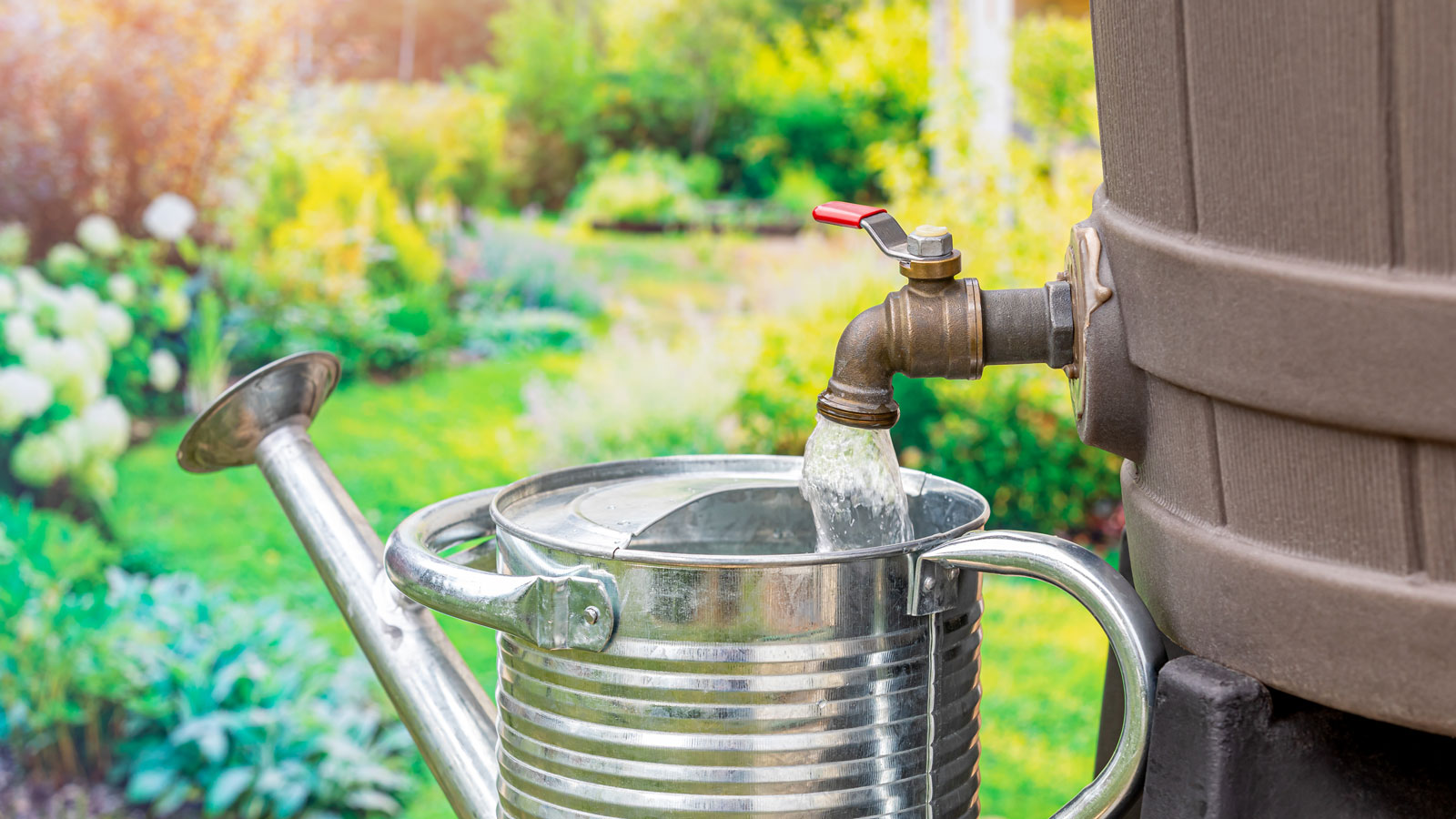

With sustainable gardening becoming more important than ever, rainwater harvesting is one of the easiest ways to get more environmentally friendly whilst taking care of your own little piece of heaven on earth. It’s well worth investing in a rain-saving system such as a water butt or a rain barrel, and once they are set up they don’t require much maintenance. But what are the main water butt and rain barrel benefits, you might be wondering?
From boosting natural water reserves during dry weather to preventing runoff when the rains come, we round up the main reasons why water butts and rain barrels can help you to become more sustainably smart.
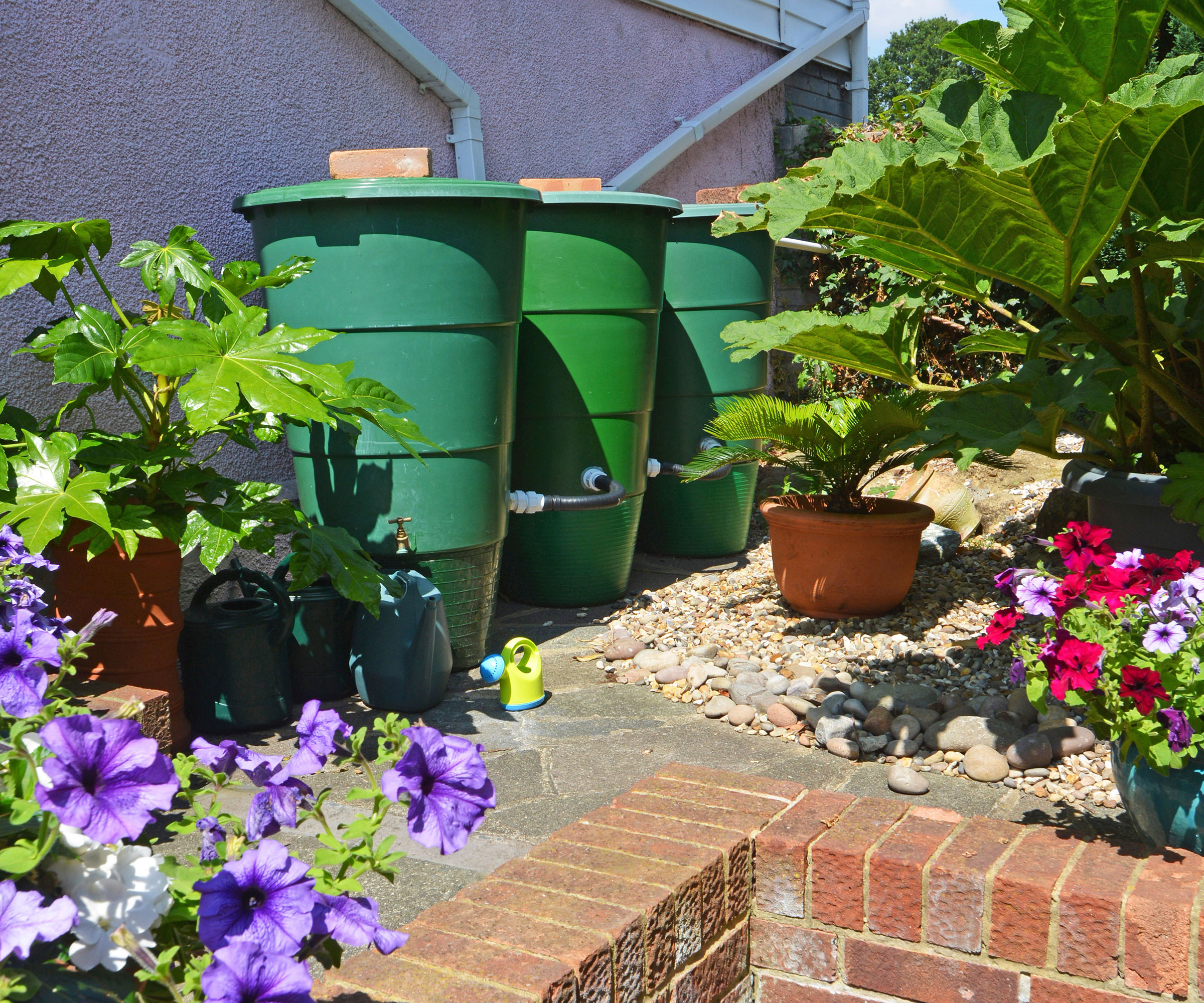
How Rain Barrels and Water Butts Work
Some gardeners who are keen to be more sustainable may well be asking, ‘What is a water butt?’ Put simply, a water butt is a container used to collect rainwater. The term is used more commonly in the United Kingdom than in the US. In the States, most people call this kind of device a rain barrel. It does not have to be a barrel, though. Any container designed and used to gather rainwater is good for harvesting rainwater, and you can make rain barrels or buy them.
In its simplest form, these large containers collect water from the downspout of your home. A spigot at the bottom of the barrel allows you to draw water as you need it. These containers can be more sophisticated, depending on your needs, garden size and budget, but even the simplest containers do the job.
Benefits of Using Rain Barrels and Water Butts
Obviously, one of the key benefits of rainwater harvesting is the chance to create a more sustainable outdoor space. But it can help to break this down a little, to see some of the specific water butt and rain barrel environmental benefits. Here are five positive reasons why a sustainable garden can benefit from using water butts and rain barrels. Just keep in mind that collected rainwater is not considered safe to drink!
1. Reduce Runoff
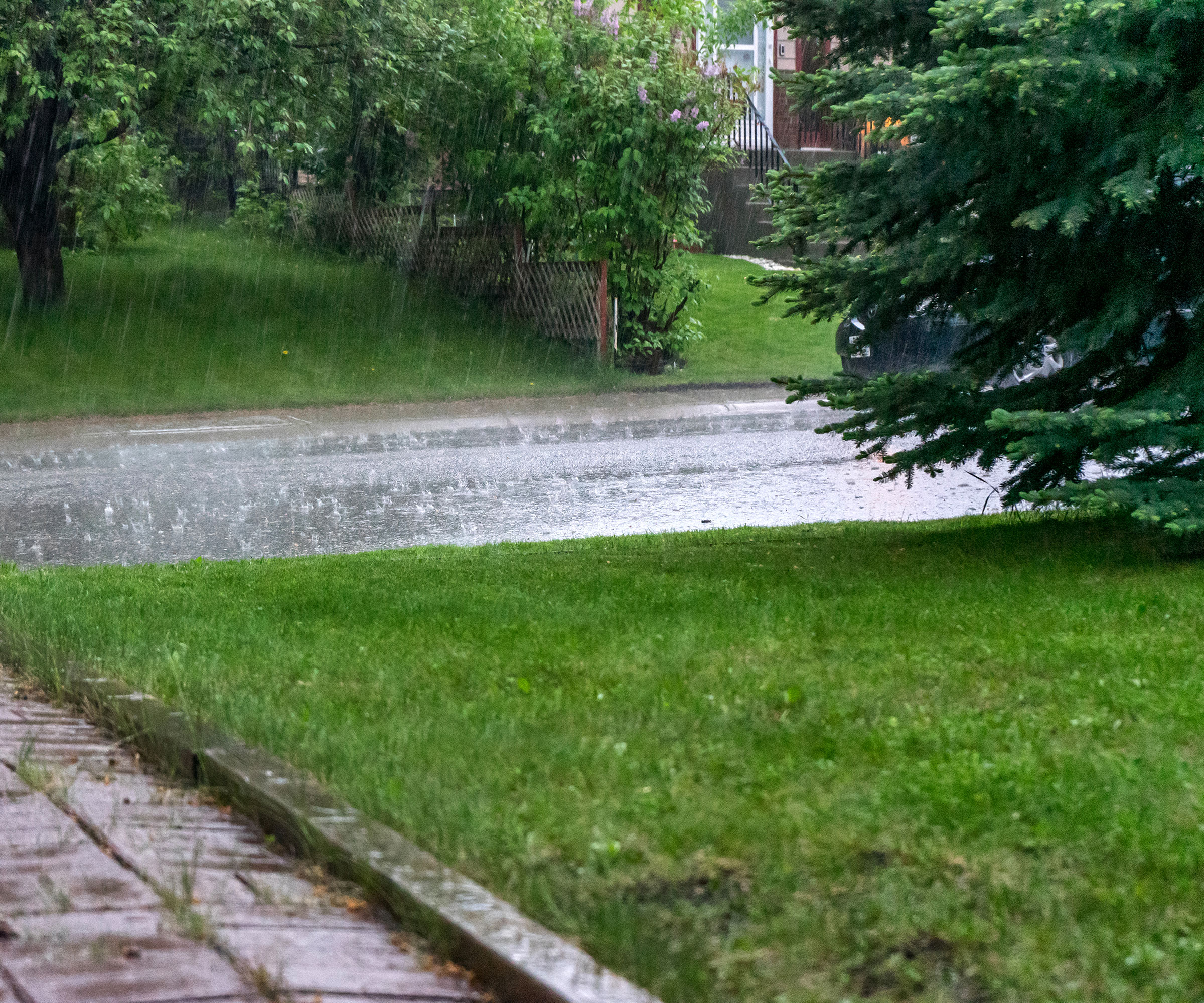
Most rainwater is runoff in urban and suburban areas. The sealed surfaces of roads, driveways and parking lots cause water to run into the sewer system rather than soak into the ground. As much as 90% of rainwater becomes runoff. Excessive runoff washes contaminants (like fertilizer and pesticides) into the sewer system and overburdens it, which can lead to pollution issues. Being able to redirect water runoff is therefore very important. Collecting rainwater allows you to use it more efficiently, reducing runoff.
2. Reduce Emissions
An overburdened sewer system means that a lot of water needs to be treated. This requires energy and contributes directly to carbon emissions. If you can reduce the burden on the system, you will also be reducing your carbon footprint.
Sign up for the Gardening Know How newsletter today and receive a free copy of our e-book "How to Grow Delicious Tomatoes".
3. Reduce Erosion and Flooding
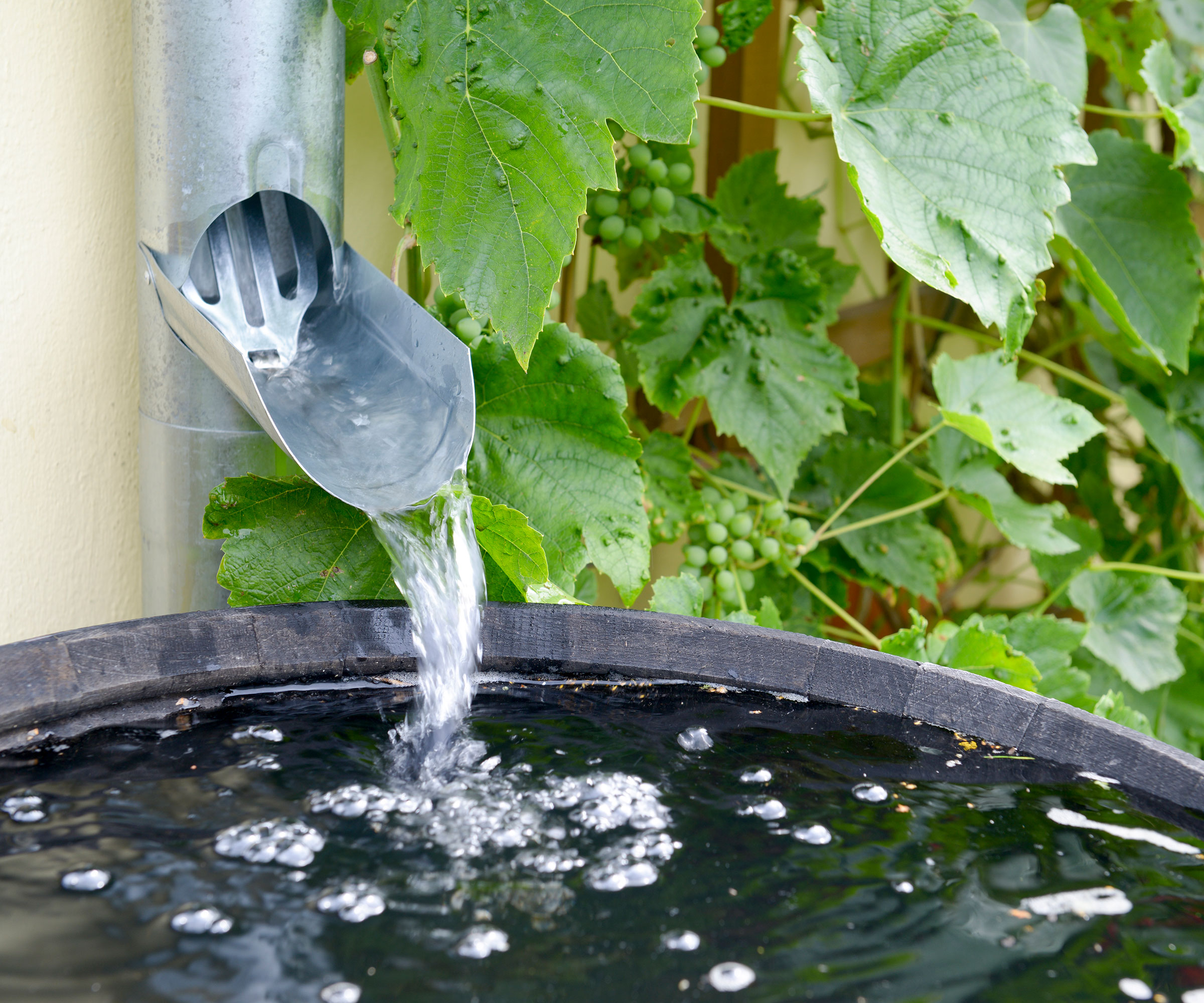
Rainwater runoff is a powerful force, especially after a heavy storm or rainfall. Even small amounts of rain over time can increase erosion. Runoff increases soil erosion, and erosion controls are therefore highly advantageous. Using water butts and rain barrels means you can capture some of that rainfall, therefore reducing the risks.
Obviously, heavy rainfalls with a lot of runoff also have the potential to produce damaging floods. All efforts to reduce runoff can reduce the severity of floods.
4. Support Groundwater
Many municipal water systems often overdraw on groundwater, depleting important reservoirs. By using rainwater, you reduce this burden. Using what you collect from water butts and rain barrels to water your yard and garden also replenishes those reservoirs.
5. Keep Plants Healthy
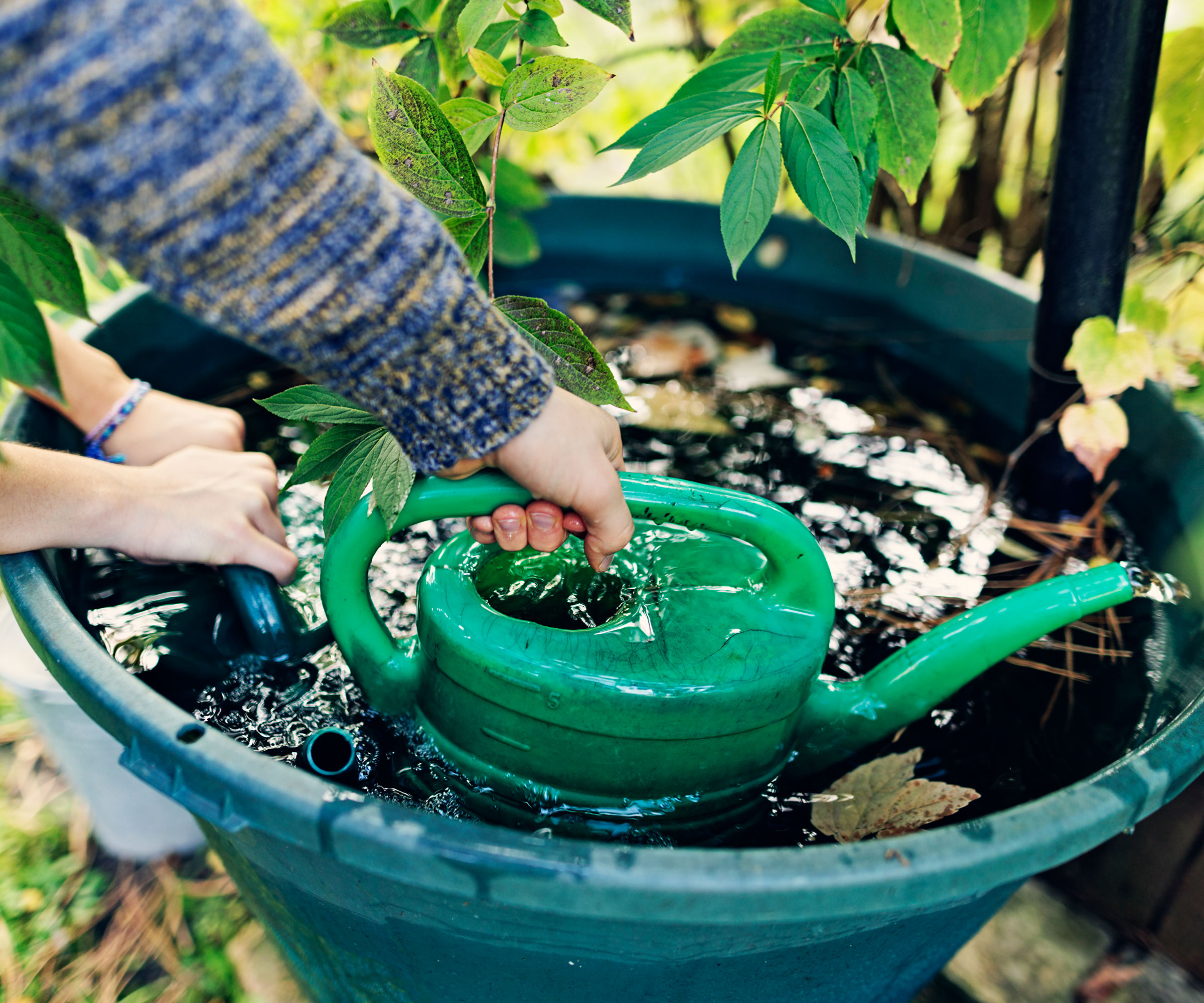
Watering your plants with rainwater is better for them. It is the natural way they get water after all. Most rainwater has a balanced pH that plants prefer. It’s also free of chemicals found in tap water that were used to treat it. Using readily stored rainwater means you can keep plants well hydrated during draughts and dry spells, helping to keep things balanced in a more natural way.
Frequently Asked Questions
Are There Any Financial Benefits to Rainwater Harvesting?
Rain barrel benefits are largely environmental. For anyone interested in growing more sustainably, water butts are a clear win-win. However, when you save rainwater to use in the garden, you also save money – because you are putting less of the onus on your domestic water supplies.
You can use rain barrel water for anything you would normally use the hose to do. As well as watering plants, you can also use it to wash your cars, which will save you a lot of tap water.

Mary Ellen Ellis has been gardening for over 20 years. With degrees in Chemistry and Biology, Mary Ellen's specialties are flowers, native plants, and herbs.